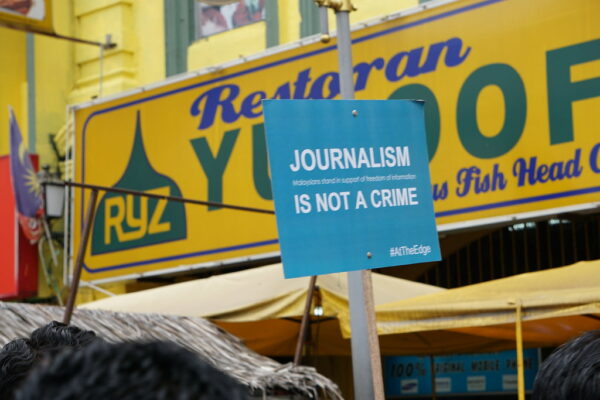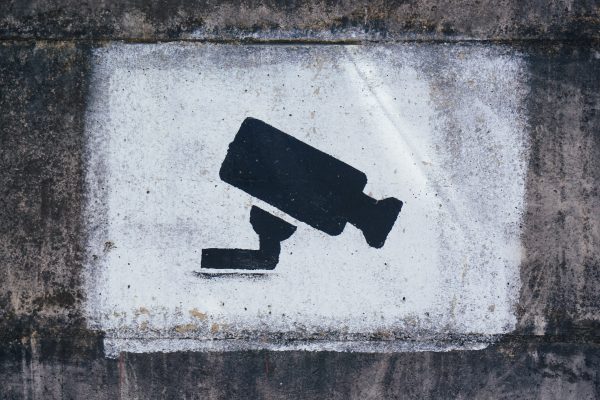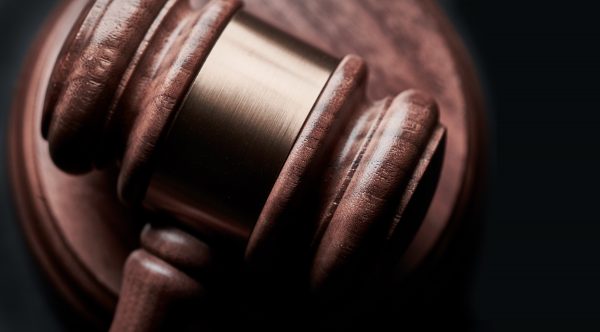On January 12, President Ilham Aliyev signed a decree “on deepening media reforms in the Republic of Azerbaijan.” As a result, the newly established Azerbaijani Agency for Media Development will replace the State Support Fund for Mass Media Development and will have all the rights of the former institution. In tandem, new media law is also being drafted by the Administration of the President for the President’s review in two months.
The decree was welcomed by many mouthpiece media, including the SES [Voice] media group. Its director, Bahruz Guliyev said, there was a need for fundamental reforms, transparency, and public demand. “Since the Azerbaijani law on mass media fails to meet the demands of the time, it requires to be revised, should be improved, and one of the main tasks of the new body is to develop a draft law ‘On media’ replacing the outdated law,” he added.
Guliyev has been a long advocate of the government of Azerbaijan. SES was established in 1991. In 2015, Guliyev in an interview with YAP [Yeni Azerbaijan Partiyasi – the ruling New Azerbaijan Party] said, the platform had a tough path having survived the “pressure and censorship from the government.” The reason for the pressure faced in the hands of the government claimed Guliyev was that “the newspaper was writing about Azerbaijani realities.”
Two years prior, Guliyev was shouting at ODIHR representative in the aftermath of the rigged presidential election in Azerbaijan accusing ODIHR of having prepared the entire preliminary statement long before coming to Azerbaijan. Just two months earlier, Guliyev was among the recipients of a free apartment by President Aliyev in the new government-built residential complex for journalists.
The charter
The Media Development Agency is a public legal entity carrying out activities to support the development of media, organise the training of media specialists and their additional education, stimulate the activities of audiovisual, print, online media and information agencies (media subjects), journalists and other media workers, as well as the introduction of new information and communication technologies and innovations in the field of media.
The agency’s tasks include organising the implementation of projects that are important for the state and society, aimed at developing, strengthening economic independence and improving the activities of these media entities, as well as in accordance with the “Concept of state support for the development of the media in the Republic of Azerbaijan.” The organisation also takes measures to strengthen the economic independence of media entities, creates financial support for the development of media, acts as a state customer for the production and distribution of audiovisual products, and holds competitions for this purpose.
Punitive measures
According to its charter, the agency can take measures to protect state and commercial secrets. In case of non-compliance with the information published in the online media within the requirements provided by law, the agency can contact the relevant authorities in order to take measures in this regard.
It also has the authority to take measures in accordance with the Code of Administrative Offenses in case of detecting signs of an administrative violation in the field of print and online media, and in case of detection of signs of a crime – to provide information to the appropriate authority [the powers are similar to the National Council on Television and Radio which can and has in the past deprive radio and television companies of air hours].
It will also be accountable to the head of state.
The agency’s governing bodies – a Supervisory Board of six members – and the executive director, are appointed by the head of state. Ahmed Ismayilov, is the executive director of the new fund. In April 2020, he was appointed the executive director of the now defunct Media Development Support Fund. Ismayilov, 40, is a lawyer by education. Previously he has worked in various government institutions, including the Heydar Aliyev Foundation, managed by the first lady and the first vice president Mehriban Aliyeva. He is a member of the ruling Yeni Azerbaijan Party.
Previously, the central executive body supervising the media in Azerbaijan was abolished when the country joined the Council of Europe in 2001.
Reactions
In his Op-ed, the director of Turan News Agency, Mehman Aliyev wrote:
Until now, the press supported by the state legally and illegally, has served the interests of the authorities, but not society; it has led to a deplorable situation in various areas, including the media themselves.
In the meantime, notes Aliyev, while the new fund’s focus is on technological aspects of media development there is no mentioning of protection of free press whatsoever. Lack of avenues for independent media in the country and impunity is the challenge, not the lack of technological equipment notes Aliyev.
Alasgar Mammadli, the media law expert, criticized the new agency’s broad, it’s vaguely defined legal powers and the absence of any wider preliminary discussions in the society ahead of its approval.
In an interview with ASTNA, lawyer Khalid Aghaliyev said while it is too early to say anything about the new agency, the role its predecessor played in Azerbaijan, should not be underestimated:
State Support Fund for the Development of Mass Media, established 11 years ago, was one of the institutions that played a key role in controlling the media in Azerbaijan. This organization gradually began to penetrate the media in 2009 and was able to make the print media almost completely dependent on it in a short time.
[…]
The image of this Fund, especially in the last 2-3 years, was seriously damaged, and its main mission was fully exposed. In this regard, it was entirely expected that the government would liquidate the Fund or present it in a new image. Therefore, I do not see a serious difference in principle between the abolished and the newly created institution. The new body will likely carry out the same mission as the Fund in reality.
[…]
Powers such as punishment with regard to the content and directing the content are very dangerous. Empowering an institution created by the state with such powers is incompatible with the right to freedom of expression. Legislation already delineates the boundaries of freedom of expression, and any other interference is unacceptable.
Two days after the decree was signed, Vugar Safarli, the former fund’s executive director [Ahmed Ismayilov’s predecessor] who was dismissed from his post in April 2020, was arrested on charges of embezzlement. During the investigation, the prosecutor’s office seized some 6million AZN [3.5million USD] from Safarli’s personal bank accounts. Safarli was expelled from the ruling party on February 15.
Now, the critics, and media practitioners must wait until the new media law is drafted. Given the country’s recent history of media crackdown, the chances of having transparent legislation are slim, while its implications worrying.


![Hacks and compromised accounts continue to target journalists and activists in Azerbaijan [updated September 13]](https://www.az-netwatch.org/wp-content/uploads/2020/09/markus-spiske-qjnAnF0jIGk-unsplash-600x400.jpg)






